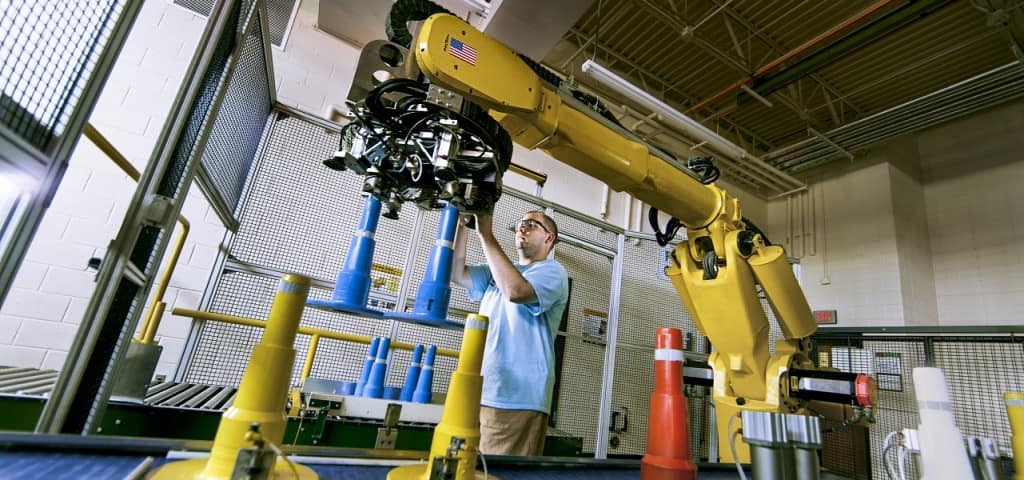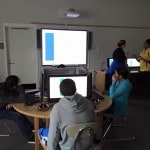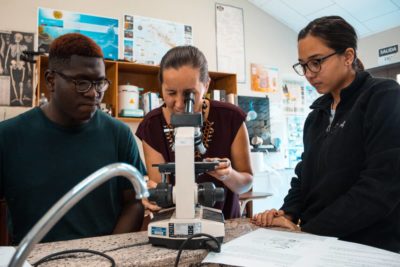As the first decade of the 21st century closed, North Carolina’s economy was on a firm foundation for growth – built around finance, high tech innovation, and entrepreneurial manufacturing. Spirit AeroSystems, Citrix, Apple, Facebook, Google, Caterpillar, the film industry, Sierra Nevada and New Belgium brewing, Cree lighting, Semprius, and more came to North Carolina or expanded because they found the infrastructure – transportation, technology, economic, and education – they needed to succeed and grow.

In the middle of the 21st century’s second decade, critical funding has made sure most of our public school classrooms have unrivaled technical infrastructure ready to handle the latest specialized learning software and apps.
But investments in preparing a new generation of public school teachers and continuing training for instructors in classrooms today has become stagnant.
Education is moving from preparing North Carolinians to have the skills to meet high tech job demand of the future to training to meet skills needed for current manufacturing jobs. Do we want to be preparing North Carolinians for jobs that will soon be extinct?

At the recent Emerging Issues Forum we learned that as many as 25 percent of today’s North Carolina jobs are disappearing as technology and robotics increasingly replace manual labor.
Futurist Martin Ford told the gathering in Raleigh that in 1979 the auto industry employed 840,000 autoworkers to generate $11 billion in earnings. In 2012, Google employed 38,000 workers and reported $14 billion in earnings.
Like it or not – when the rubber meets the road for the economic future of North Carolina, it’s going to be more Tesla and less Model T.


If North Carolina is to take its rightly place as a top leader in national and global affairs it must provide:
Access to a quality education to all students, no matter where they live.
Accelerate digital learning from elementary through high schools to increase learning options for students and expand instructional options for teachers.
Workers with the training and skills to meet the demands of the most innovative employers – whether manufacturing, high tech, finance, academics, retailing, entertainment, agriculture, and even government.
Communications and energy infrastructure and resources that are reliable and competitively priced to fuel the needs of a growing population and thriving economy.
An environment that sustains and supports growth with clean air, water.
Drones delivering meals personalized to an individual’s unique nutritional and taste needs; finance – personal and professional – being conducted remotely without cash and in currencies making Bitcoin seem old fashioned. Imagine summoning virtual bartenders, DMV bureaucrats, and sales clerks with a voice command into your tablet or your other smart device.
These are not unreasonable expectations and if North Carolina is going to be a leader, it needs to move toward these goals today.
Teachers – from pre-school to post-graduate – need to be better trained and compensated.
We aren’t going to provide an innovative and adaptable workforce without the best instructors to prepare it.
And we need to embrace new technologies that will bring the best instruction, no matter the subject area, to every student in North Carolina, no matter where they live.
Education is a critical economic driver as well. Our state’s universities host some of the finest education schools in the nation. In addition to developing outstanding educators, these centers are incubators for education innovation. North Carolina can cultivate an innovation economy for education technology startups and entrepreneurs.
Education entrepreneurs, classroom practitioners, policymakers will create new learning environments that can bridge nagging achievement gaps and expand opportunities.
I fervently hope North Carolina’s business and civic leaders will heed a call to action to invest in schools that will be the envy of the nation, not nestled darkly at the bottom of every national ranking. Our workforce, no matter what the category, will be among the best compensated because they have the skills and knowledge to compete in a global economy. Technical innovation will be commonplace.
North Carolina is the proud birthplace of race cars, Pepsi, and the first public university. By preparing and focusing today, North Carolina will be the birthplace of innovations and technologies to make our lives better — and reverberate around the world.










